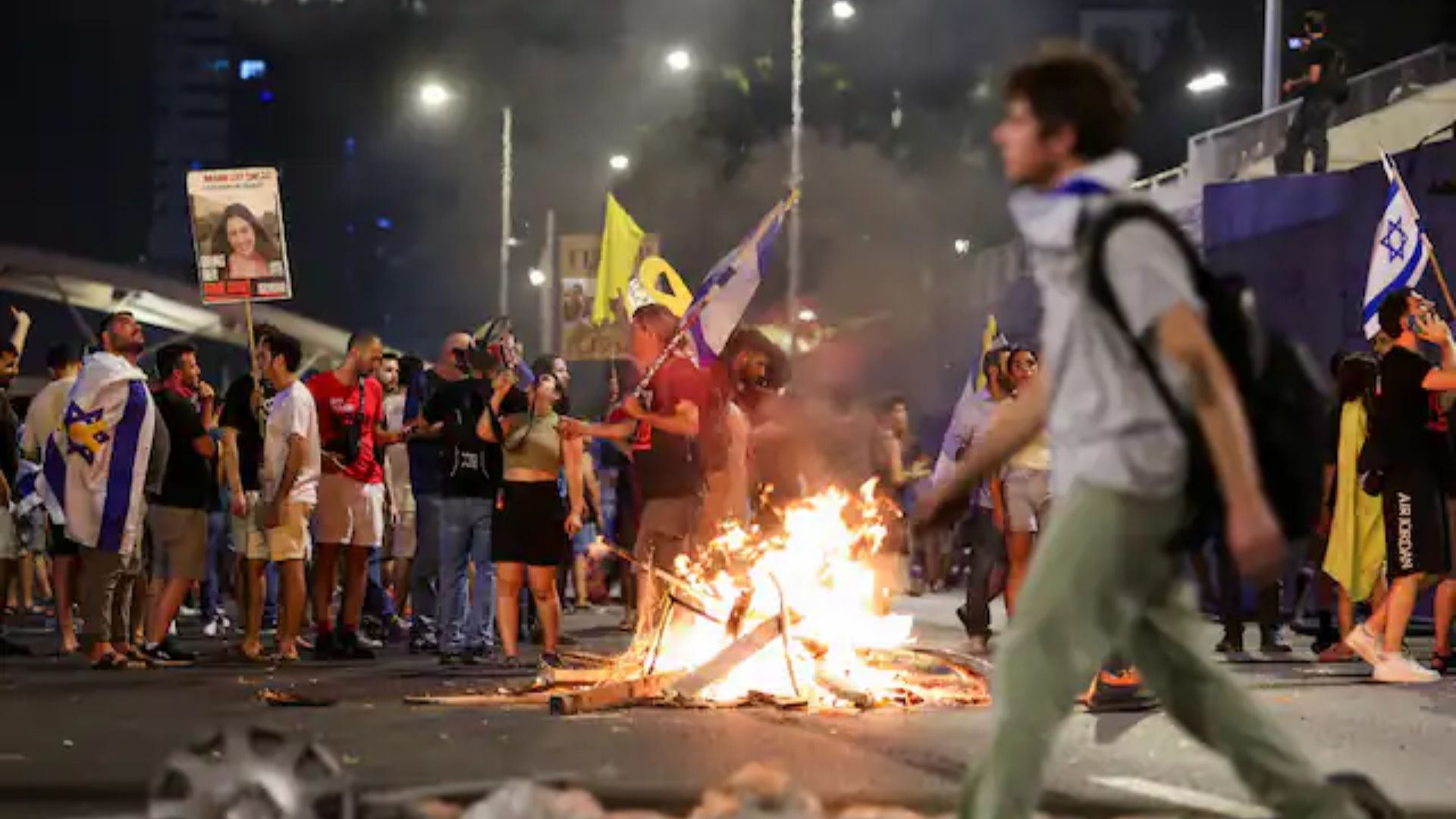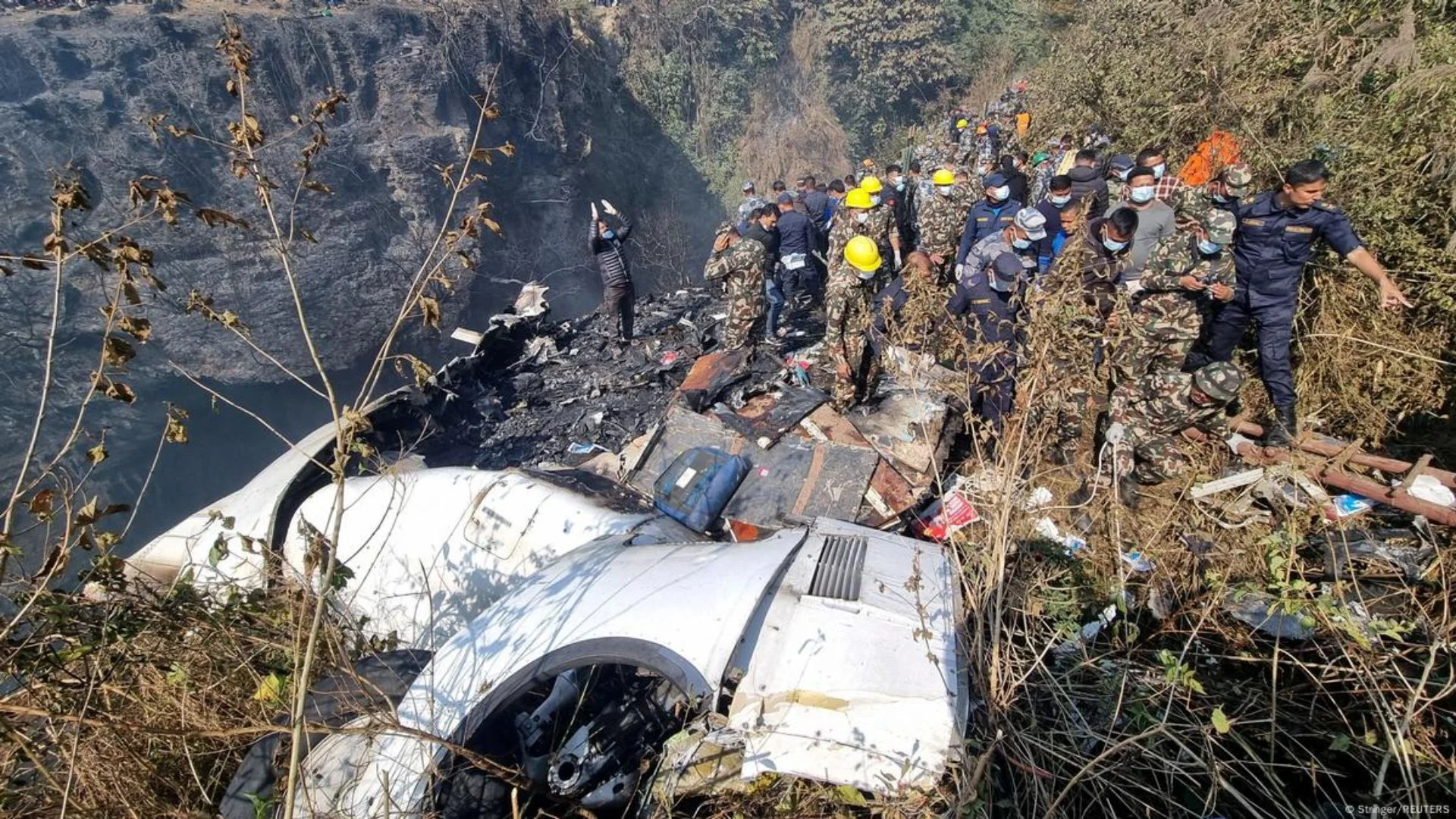Israel witnessed a massive outpouring of anger as hundreds of thousands of protesters took to the streets in response to the deaths of six hostages in Gaza. The demonstrations underscored public frustration with the Israeli leadership’s failure to secure a ceasefire and free the remaining captives.
Large-Scale Demonstrations and Road Blockages
Israeli media reported that around 300,000 people assembled in Tel Aviv, with another 200,000 participating in protests nationwide. Demonstrators in Jerusalem blocked streets and gathered outside Prime Minister Benjamin Netanyahu’s residence, demanding action. In Tel Aviv, protesters filled the main highway, holding flags bearing images of the deceased hostages. Police responded by using water cannons to disperse crowds, resulting in 29 arrests. In solidarity with the protests, labor leaders announced a one-day general strike for Monday.
https://twitter.com/i/status/1830357321480114367
Recovery of Hostage Bodies from Gaza
The Israeli military announced on Sunday that the bodies of six hostages—Carmel Gat, Hersh Goldberg-Polin, Eden Yerushalmi, Alexander Lobanov, Almog Sarusi, and Ori Danino—had been recovered from a tunnel in Rafah, a city in southern Gaza. Military spokesperson Rear Admiral Daniel Hagari confirmed the recovery, while a health ministry spokesperson revealed that the hostages had been “murdered by Hamas terrorists in several shots at close range” 48 to 72 hours prior.
🚨🇮🇱 MASSIVE PROTEST in Israel calling on Netanyahu to RESIGN IMMEDIATELY! pic.twitter.com/tMU5EDD3YA
— Jackson Hinkle 🇺🇸 (@jacksonhinklle) September 1, 2024
Netanyahu Under Pressure Amid Ongoing Conflict
Prime Minister Netanyahu faces mounting pressure to negotiate a ceasefire and secure the release of the remaining 101 hostages. The conflict, which began following attacks by Hamas and other militants on October 7, 2023, has led to substantial casualties and widespread devastation in Gaza. Israeli forces have heavily targeted the Gaza Strip, which has a population of 2.3 million. According to Gaza’s health ministry, at least 40,738 Palestinians have been killed in the conflict, and the region faces severe humanitarian conditions.
Calls for Action from Trade Unions and Political Leaders
Arnon Bar-David, head of Israel’s trade union federation, called for a general strike on Monday to push the government toward a ceasefire agreement. Defense Minister Yoav Gallant and opposition leader Yair Lapid also supported the call for an agreement, with Lapid urging participation in the Tel Aviv protests.
Family Reactions and Diplomatic Efforts
Netanyahu’s office reported that the Prime Minister had expressed “deep sorrow” to the family of Alexander Lobanov, one of the deceased hostages. However, the family of Carmel Gat rejected the Prime Minister’s offer to meet, instead urging Israelis to join protests. “Take to the streets and shut down the country until everyone returns. They can still be saved,” said Gat’s cousin, Gil Dickmann, on X.
Ongoing Negotiations and Humanitarian Efforts
Efforts to negotiate a ceasefire, mediated by the United States, Qatar, and Egypt, have yet to yield results despite increased US involvement. Currently, Israel and Hamas have agreed to a temporary pause in fighting for eight hours daily from Sunday to Tuesday to allow for the vaccination of 640,000 children in Gaza against polio.







